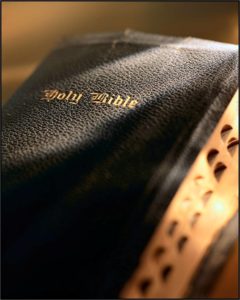 When I was getting my undergraduate degree and only then solidifying my Christian faith, I took one course called “The Bible as Literature.” I was attending Purdue University, a large public institution with no leanings toward Christian faith, so I naturally was pleased to see such a course offered.
When I was getting my undergraduate degree and only then solidifying my Christian faith, I took one course called “The Bible as Literature.” I was attending Purdue University, a large public institution with no leanings toward Christian faith, so I naturally was pleased to see such a course offered.
I didn’t go into it completely unaware of what a course like that might entail, given the probability that the professor would be someone who would view the Bible differently than I did. But I wanted to give it a chance and perhaps come out with something worthwhile.
I was disappointed with respect to getting anything worthwhile from the course itself, but it was tantamount to a graduate education on how the world outside my evangelical orbit viewed what I believe to be sacred writings.
C. S. Lewis, in a 1950 essay, “The Literary Impact of the Authorised Version,” tackled that whole approach of reading/teaching the Bible as literature, and, as usual, his perspective brings a freshness—even an audacity—to the subject.
In light of certain literary tastes, Lewis asks whether those particular tastes will help people appreciate the Bible more. He comes down on the side of what I experienced in that course taught by a professor who saw nothing sacred about the text:
Stripped (for most readers) of its divine authority, stripped of its allegorical senses, denied a romantic welcome for its historical sense, will it none the less return on the wave of some new fashion to literary pre-eminence and be read? . . .
I offer my guess. I think it very unlikely that the Bible will return as a book unless it returns as a sacred book.
Lewis was writing of the version we know of as the King James, which many might appreciate for its Shakespearean-era language. Yet he doubts that, in itself, will be sufficient to entice more readers.
Unless the religious claims of the Bible are again acknowledged, its literary claims will, I think, be given only “mouth honour” and that decreasingly. For it is, through and through, a sacred book. Most of its component parts were written, and all of them were brought together, for a purely religious purpose.
People may offer a modicum of “honor” to the Bible as literature, but they are merely going through the motions. They don’t really intend to treat it seriously; after all, it has all those outrageous doctrines that exclude all other religions. It claims to bring the only real truth—and they can’t accept that.
Neither Aeschylus nor even Virgil tacitly prefaces his poetry with the formula “Thus say the gods.” But in most parts of the Bible everything is implicitly or explicitly introduced with “Thus saith the Lord.”
It is, if you like to put it that way, not merely a sacred book but a book so remorselessly and continuously sacred that it does not invite, it excludes or repels, the merely aesthetic approach.
No matter which version of the Bible one reads today, Lewis’s point remains:
It demands incessantly to be taken on its own terms: it will not continue to give literary delight very long except to those who go to it for something quite different.
It the Bible is not the Word of God, it has no real value, at least not for eternity. If it is the Word of God, it is of the utmost value, and that is how it should be read and taught.
